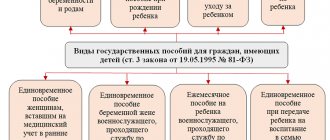The loss of a relative or friend is a difficult ordeal for loved ones. Despite this, in such cases, relatives must immediately gather their strength and take on many obligations. One of the important issues that cannot be delayed is the registration of the deceased’s property. Today, there are simplified procedures for filing an application with government agencies. For example, you can enter into an inheritance through State Services, which will save time and allow you not to take time off from work.
Who can apply
According to current legislation, both relatives and friends who:
- mentioned in the will;
- have the right of inheritance by law.
Every capable citizen can decide the fate of all the property he has acquired during his lifetime by notarizing his will in the form of a testamentary document. Such a document, drawn up in front of a notary, indicates the persons who will be able to become the owners of the values indicated there.
Reference. A testamentary document allows you to transfer everything acquired during your lifetime to the person who, in the opinion of the deceased, is best worthy of his belongings. Therefore, not only relatives, but also friends, acquaintances and complete strangers to the deceased person can assume the rights of an heir under a will.
If the deceased did not leave a will, relatives will be called upon to inherit primarily, according to the order of priority established by law. Depending on which relatives of the deceased are alive, the inheritance may go to both children and dependents.
All citizens claiming inheritance must declare their rights no later than 6 months from the date of the tragic event.
List of documents for registration of inheritance for various types of property
In addition to general information, when entering into an inheritance, you must provide information about the inherited property.
The list of data varies depending on the type of property:
- residential premises (apartment, house);
- land plot;
- vehicle (car);
- bank deposits;
- shares, securities.
Important! Since 2015, the law prohibits a notary from requesting information from property recipients about the encumbrance of property. The notary must request this data himself.
Apartment, house, real estate
The most popular subject of inheritance is real estate. This includes apartments, residential buildings, cottages and other buildings and structures.
| No. | Purpose of the document | Name |
| 1 | Title documentation | purchase and sale agreement, exchange agreement, donation agreement, privatization certificate, certificate of inheritance rights, data from the gardening partnership on the construction of a country house |
| 2 | Legal documentation | Extract from the Unified State Register of Real Estate |
| 3 | Cadastral documentation | Cadastral passport |
| 4 | Technical documentation | Certificate from BTI |
| 5 | Data on non-residential buildings | Declaration of construction of a building |
| 6 | Data on the absence of payment debts | Certificates of absence of tax debt |
Land plot
When inheriting a land plot, heirs must provide the following information:
- site planning;
- cadastral passport;
- extract from the Unified State Register of Real Estate;
- title documentation;
- papers confirming the absence of tax debts.
Automobile
When inheriting a car, you must additionally provide:
- vehicle passport (PTS);
- registration certificate.
Important! In the absence of the above data, a certificate from the traffic police is provided stating that the deceased was the owner.
Bank deposits
When inheriting bank deposits, heirs must provide:
- savings book (if available);
- original agreement between the testator and the bank for opening a deposit;
- information about the credit institution.
Shares, securities
When inheriting securities you will need:
- full name of the joint stock company;
- extract from the register of share holders;
- act of valuation.
Important! If the subject of inheritance is only shares, an extract from the deposit account and an appraisal report will be required.
Claimants entitled to inheritance
The property that belonged to the deceased is transferred to the disposal of the closest relatives. There are three main degrees of relationship:
- Parents, children, spouse.
- Grandmothers, grandfathers.
- Siblings, then cousins and second cousins.
Accordingly, first of all, the inheritance goes to the closest people in terms of kinship. If they refuse, the property goes to the next category of relatives, etc.
Click of sadness
For example, it will be possible to obtain a birth certificate by sending an electronic application and a medical certificate of birth to the registry office. Interestingly, you do not need to attach a marriage certificate. The registry office already knows whether a person has an official significant other. Everything is recorded in the electronic database. So, in any case, it will not be possible to record a completely stranger on the birth certificate as the second parent.
It will become much easier to register an inheritance. Of course, you can’t do without visiting a notary. You still have to come at least once. However, a lot of issues that previously killed a lot of time will now be resolved quickly and electronically.
First step: obtaining a death certificate. It can be done online. “Information on state registration of birth or death will be sent from the Unified State Register of Civil Registry Offices to the applicant’s personal account on the Unified Portal,” the Ministry of Justice explained.
In turn, the Federal Notary Chamber of Russia told RG that one of the stages of the “Loss of a loved one” service is “making an appointment with a notary.” This option will help citizens quickly resolve the issue of opening an inheritance case.
“It is expected that through the public services portal, heirs will be able to make an appointment with any nearby notary within the territorial district where the inheritance case is opened (or is about to be opened), create and send a package of documents to the notary, so that the notary can conduct a legal examination of the documents in advance,” they say at the Federal Notary Chamber. — Thus, one visit to a notary will be enough. In the future, a certificate of the right to inheritance will be available both in person and in your personal account on the portal of the State Search for Inheritance" and "Inheritance without a visit." The basis for the implementation of these initiatives is the Unified Notary Information System.
Today, one of the problems for relatives of the deceased is searching for his property. The implementation of the “Inheritance Search” service will allow a notary to request this information about the testator from banks in electronic form, forming a single request that will be available to all banks included in the service. The bank in which the accounts or other assets of the testator are located will promptly respond to the request. This will allow the citizen to obtain information not only about the assets of the deceased (accounts, securities, safes, deposits, etc.), but also about available loans. This means that he will be able to correctly assess the inheritance mass and make a decision - to enter into an inheritance or refuse it.
“Inheritance without a visit” will allow the heir to receive money included in the inheritance into his account without visiting the bank. This is implemented as follows: the notary will send information to the bank where the testator had accounts opened. Funds from the testator's accounts are transferred to the heir's account without the latter visiting the bank. Provided, however, that the bank is one of the credit institutions that have an agreement with the FNP.
When can you inherit an inheritance?
As for the permitted delay, you can formalize your claims to inheritance from the moment the inheritance case is opened and over the next 6 months. This procedure is carried out exclusively when opening an inheritance after the death of the testator. Assignment of property and the opportunity to register objects in your name (or transfer of funds to accounts) occurs later.
You can register your share within six months from the date of opening of the inheritance. During this period, legal successors have the right to write statements of consent to accept the inheritance or refuse it. Waiting for the established period is mandatory even when carrying out all the procedures required of the heir.
After six months, the successors receive a certificate of inheritance from a notary (not through the MFC). This is where the notarial support ends, and the future owner has the right to contact the authorities to register new property, for example, to Rosreestr to register real estate (apartment, house) in his name, to the traffic police for vehicles, or to register an inheritance through the MFC.
Drawing up an application
The application is submitted to the court of general jurisdiction at the last place of residence of the deceased. The statement of claim consists of three parts:
- introductory
- descriptive,
- pleading.
In the introductory part, the plaintiff indicates his personal data, as well as the data of the testator, and provides information about the disputed inheritance. If the appeal occurs with the aim of recognizing the right to actually inherited real estate, then its main characteristics must be given:
- cadastral number;
- area of land or living space of an apartment;
- real estate parameters;
- location address.
You also need to provide information about the type of right under which the deceased owned the specified real estate - property, inherited possession or the right of perpetual use.
The descriptive part provides the grounds for filing a claim and the circumstances that arose in connection with this. It also provides extracts from legislative norms and acts according to which the plaintiff claims the inheritance, as well as evidence of the circumstances of the claim and information about the pre-trial process.
In the pleading part, the plaintiff presents his demands to the defendants and requests to the court, indicating the price of the claim (in case of compensation for damage from the actions of the defendants), as well as the percentage of the property of the deceased that the plaintiff claims.
Download a sample statement of claim for recognition of the fact of inheritance
Documents for registering property rights by inheritance
Re-registration is required for the following types of property:
- real estate (in Rosreestr);
- vehicles (traffic police);
- weapons (licensing system of the Ministry of Internal Affairs).
You must have the following package of documents with you:
- passport (or other identification document);
- statement;
- certificate of inheritance (obtained from a notary);
- receipt of payment of the duty;
Additionally you may need:
- cadastral passport (if the object is registered for the first time; the object must be registered in Rosreestr);
- agreement for the division of real estate (if there is more than one heir);
When obtaining permission to use weapons, a certificate from a narcologist and a psychiatrist is provided, confirming the person’s sanity.
The cost of registering an inheritance through the MFC with the support of lawyers
Price for consultation with a specialist on inheritance registration through the MFC
| First communication with a specialist | For free |
| Detailed oral explanation of the issue | From 1 800 |
| Drawing up a written conclusion after studying the materials | From 5 000 |
| Departure of a lawyer for consultation within Moscow | From 9 800 |
| Departure of a specialist outside the Moscow Ring Road | From 11 000 |
The price of a lawyer working with documents on registration of inheritance in the MFC
| Studying the case materials | From 2,000 |
| Drawing up an application for registration of inheritance | From 2 500 |
| Drawing up a package of documents for registration of inheritance through the MFC | From 5 000 |
| Drawing up requests to various authorities | From 3 000 |
| Payment of state duty and its calculation | From 2 500 |
| Restoration of property documents if they are missing | From 5 500 |
| Drawing up a claim package of documents, if registration through the court is necessary | From 15 000 |
The price of a lawyer to register an inheritance through the MFC
| Representation of the client in various authorities | From 4 800 |
| Accompanying the client in negotiations with other heirs | From 7 000 |
| Resolving controversial issues | From 5 500 |
| Briefing the client before trial | From 2 500 |
| Accompanying the client at the meeting | From 9 000 |
| Execution of a court decision | From 6 000 |
| Solving the issue comprehensively from consultation to obtaining a certificate | From 25 000 |
Registration of inheritance through the MFC is one of the most profitable and quick options to receive property bequeathed or due on the basis of kinship. To really go through the entire path of interaction with the center smoothly and quickly, you only need to comply with the laws and follow the prescribed steps. This is: contacting a notary, collecting documents, working with real estate appraisers, and only in the end can you obtain a certificate. To have complete confidence in the correctness of actions, you need to use the services of professionals.
General procedure for registering an inheritance
Registration of inheritance involves the following actions:
- Preparation of documents.
- Contacting a notary.
- Submitting an application for acceptance of inheritance.
- Property valuation.
- Payment of duty.
- Obtaining a notarial certificate.
- Contacting the registration authority.
- Registration of property rights to real estate.
- Obtaining an extract from the Unified State Register of Real Estate.
In some cases, the registration procedure may be different. For example, if the successor accepted a cash contribution by inheritance. After receiving the certificate, registration of ownership is not necessary. The heir just needs to contact the bank, write an application and receive his money.
Types of inheritance
A will allows people to enter into an inheritance, regardless of the nature of their connection with the deceased. The absence of a notarized declaration of will or the listing of not all of the owner’s property activates the mechanism of division under the law. The MFC is not involved in these processes.
How can you register an inheritance:
- by will;
- in order of legal priority;
- under an inheritance agreement.
The third option was introduced into the Civil Code relatively recently and makes it possible to formalize a bilateral transaction between the testator and the heir. The latter must comply with his part of the contract, fulfilling the obligations assigned to him during the life of the testator. This form is similar to the situation of inheritance assignment under a standard will.





